Interviews With Peyronie's Doctors
In this section, I will be conducting interviews with Peyronie's doctors but many leading doctors in the field have agreed to be interviewed. On behalf of the readers of My Peyronie's, I am very grateful to them.
This is your opportunity to hear what some of best specialists in the field have to say about Peyronie's.
What Do The Doctors Say About Peyronie's?
Doctors do not agree about all aspects of the Peyronie's disease. However, they tend to agree about many things. Like the importance of seeking medical advice and starting treatment as soon as possible.

They also agree on the importance of further research into the cause of the disease and the need for supporting patients and helping them seek appropriate medical treatment.
Opinions are more divided regarding which treatments they recommend. However, most seem to prefer combination of treatments for men in the early acute phase of the disease, e.g. oral medication and injections combined with the use of penis stretching device.
I am very grateful to all the doctors that have been willing to participate in My Peyronie's interviews. They are (in alphabetical order):
Dr. Gelman (Orange, Californa, USA)
Dr. Goldstein (San Diego, California, USA)
Dr. Grossman (Denver colorado, USA)
Dr. Hellstrom (New Orleans, Louisiana, USA)
Dr. Khera (Houston, Texas, USA)
Dr. Levine (Chicago, Illinois, USA)
Dr. Ludlow (Holland, Michigan, USA)
My Peyronie's Interviews
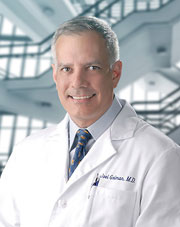
Dr. Joel Gelman is an expert in erectile dysfunction and male urethral and genital reconstruction. He has performed over 1,400 urethral-penile reconstructive surgeries, and his practice is limited to his area of expertise in male urethral and penile/genital reconstructive surgery.
Dr. Gelman is listed by US News and World Report as one of America’s Best Doctors, a distinction based on peer nomination, and is also listed as one of America’s Top Doctors (Castle Connoly list) and one of America’s Top Surgeons (Consumer Research Council).
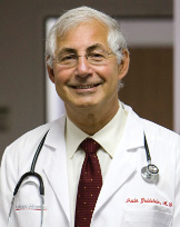
Dr. Irwin Goldstein was on the faculty of Boston University School of Medicine for 25 years where he was Professor of Urology and Gynecology. Dr. Goldstein is currently the President of The Institute for Sexual Medicine, a charitable corporation for education and research in the field.
Dr. Goldstein is one of the leading experts in the use of Xiaflex injections to treat men with Peyronie's disease. He participated in the Xiaflex clinical trial and was one of the leading recruiters for the double blind placebo-controlled clinical research trial.
Dr. Irwin Goldstein has performed several thousand intralesional injections of Peyronie’s plaques, primarily of Xiaflex and interferon. He strongly believes in medical versus surgical management.

Dr. Fred Grossman is an American Board of Urology certified urologist. He specializes in erectile dysfunction and other male sexual dysfunction, including Peyronie's disease.
Dr. Grossman is the owner of the Male Care Center in Denver, USA, where he sees around fifty Peyronie's patients per year.
He reckons that around 20-25% of his patients do not respond to non-surgical treatments and therefore require penile surgery.
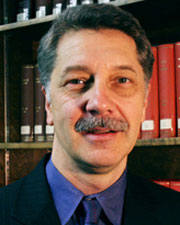
Dr. Wayne J. G. Hellstrom is Professor of Urology and Chief of Andrology at Tulane University School of Medicine in New Orleans and specializes in the diagnosis and treatment of sexual dysfunction, including Peyronie's disease.
Dr. Hellstrom sees over 500 Peyronie's patient per year. He commonly obtains a penile duplex ultrasound of his patients to objectively assess the degree of the penis curvature and its impact on erectile function.
Depending on the results, he frequently offers his non–surgical patients several treatment options, including oral therapy or intralesional injections with concurrent penile traction therapy.
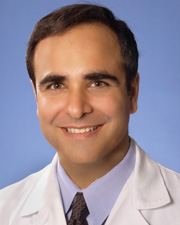
Dr. Mohit Khera, M.D. is an Assistant Professor in the Scott Department of Urology at Baylor College of Medicine and Director of the Laboratory for Sexual Medicine at Baylor College of Medicine.
He sees over 500 Peyronie's patients each year, of which around 100 are new patients. Dr. Khera recommends combination of 3 treatment options for new patients, i.e. oral medication, penile plaque injections (if no calcifications) and the use of penis traction device.
Dr. Khera believes low testosterone level could be contributing cause and recommends Peyronie's patients to have their levels checked. He also recommends that men that start to develop erectile dysfunction have it treated a.s.a.p. as it can lead to Peyronie's later on.

Dr Franklin Kuehhas is a medical specialist in the field of urology and andrology. He specializes in reconstructive andrology, which deals with complex issues surrounding the male genitalia. Dr. Kuehhas received his specialization training at the University College London. He also underwent his training at the prestigious University Hospital in Heidelberg (Germany) and at the University Hospital of Vienna (Austria).
Dr Kuehhas focuses on the treatment of congenital and acquired penile curvatures (Peyronie’s disease). His research activities have resulted in many publications and improvements of surgical techniques such as the STAGE technique for congenital penile curvature treatment. Furthermore Dr Kuehhas also focuses on the surgical treatment of therapy-resistant erectile dysfunction. The implantation of penile prostheses is another big focus of Dr Kuehhas.
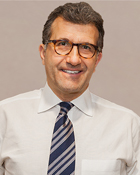
Dr. Laurence A. Levine MD is a Professor of Urology in the Department of Urology at Rush University Medical Center in Chicago. He maintains a busy clinical practice while also teaching residents and physicians worldwide in the fields of reconstructive urology and andrology.
Dr. Levine non-surgical approach is well known but he refers to it as his “three-arm protocol”, i.e. combination treatment of oral medication, injections, and traction therapy. He explains his approach in great detail and goes through his success rate.
He also provides valuable information about the different surgery options for men with Peyronie's disease as well as his experience and opinion of using Xiaflex injections.
Dr. Levine is without a doubt one of the best-known Peyronie's specialists in the world today. His detailed answers makes this interview a MUST read for any man suspecting he has Peyronie's disease or that has recently been diagnosed.

Dr. John K. Ludlow, M.D. is a board-certified urologist with Western Michigan Urological Associates. He provides both surgical and nonsurgical treatment for a range of urological conditions, including Peyronie's disease and erectile dysfunction.
Dr. Ludlow thinks that earlier evaluation and treatment can, in most cases, lead to better outcomes.
He wants to see more co-operation among the urologists that specialize in Peyronie's disease. By combining the data it is easier to figure out what works and what doesn't and in the end, it's the Peyronie's patients that would be the winners.

Dr. Gianni Paulis is Andrologist Consultant at the Regina Apostolorum Hospital in Rome where he directs the Center of Andrology. He is one of the most experienced Peyronie's specialists in Italy.
Dr. Paulis sees around 300 Peyronie's patients per year. Interestingly majority of his patients are currently under 40 years old.
He has achieved good results with his two "multimodal" treatment options, i.e. including combination of medication (and sometimes penile injections as well). He is a strong believer in treating the disease immediately.

Dr. Paul Perito is an expert in erectile dysfunction and penile implant surgery. He founded Perito Urology in 2005 where he performs over 500 penile implant surgeries each year.
Perito Urology offers a spectrum of services that include the treatment of Peyronie’s Disease and all other forms of urologic care related to erectile function and men’s health.
Dr. Perito believes that early diagnosis of Peyronie's disease is extremely importance, that even days can make a difference. He also believes that men that are more frequently and aggressively sexually active are of higher risk of developing the disease.

Dr. David Ralph is a Consultant Urologist at the Institute of Urology in London and is one of the most experienced Peyronie's specialists in Europe.
Dr. Ralph sees around 500 new Peyronie's patients every year, of those around 80% have mild or moderate symptoms that may benefit from non–surgical Peyronie's treatments.
Dr. Ralph recommends combination of oral treatments during the early active phase of the disease while vacuum therapy may be added at any stage of the disease.
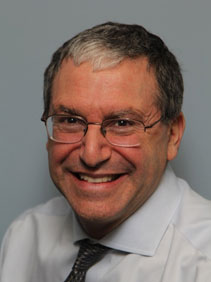
Dr. Michael Werner is the Medical Director of Maze Sexual & Reproductive Health.
His experience in treating patients with Peyronie’s disease has led him to believe that there may be a strong genetic component connecting Peyronie’s disease and other fibrotic disorders, such as: Dupuytren’s Contracture, Frozen Shoulder, and Ledderhose’s disease.
Dr. Werner participated in the initial studies that led to Xiaflex being FDA approved for its treatment. As a result, he was one of the earliest adopters of intralesional Xiaflex injections for Peyronie’s disease.



